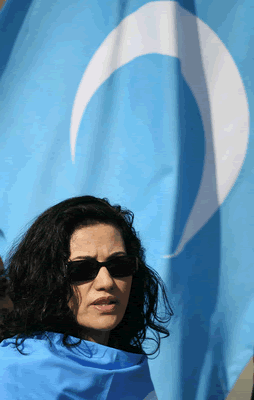ISTANBUL — Russia and Turkey concluded energy agreements on Thursday that will support Turkey’s drive to become a regional hub for fuel transshipments while helping Moscow maintain its monopoly on natural gas shipments from Asia to Europe.
Turkey granted the Russian natural gas giant Gazprom use of its territorial waters in the Black Sea, under which the company wants to route its so-called South Stream pipeline to gas markets in Eastern and Southern Europe.
In return, a Russian oil pipeline operator agreed to join a consortium to build a pipeline across the Anatolian Peninsula, from the Black Sea to the Mediterranean, and Gazprom affirmed a commitment to expand an existing Black Sea gas pipeline for possible transshipment across Turkey to Cyprus or Israel.
Energy companies in both countries agreed to a joint venture to build conventional electric power plants, and the Interfax news agency in Russia reported that Prime MinisterVladimir V. Putin offered to reopen talks on Russian assistance to Turkey in building nuclear power reactors.
The agreements were signed in Ankara, the Turkish capital, in meetings between Mr. Putin and his Turkish counterpart, Recep Tayyip Erdogan. Italy’s prime minister, Silvio Berlusconi, who has joined Mr. Putin on several energy projects, attended the ceremony. The Italian company Eni broke ground on the trans-Anatolian oil pipeline this year.
While the offer of specific pipeline deals and nuclear cooperation represented a new tactic by Mr. Putin, the wider struggle for dominance of the Eurasian pipelines is a long-running chess match in which he has often excelled.
As he has in the past, Mr. Putin traveled to Turkey with his basket of tempting strategic and economic benefits immediately after a similar mission by his opponents. A month ago, European governments signed an agreement in Turkey to support the Western-backed Nabucco pipeline, which would compete directly with the South Stream project.
By skirting Russian territory, the Nabucco pipeline would undercut Moscow’s monopoly on European natural gas shipments and the pricing power and political clout that come with it. That may explain why Nabucco, which cannot go forward without Turkey’s support, has encountered a variety of obstacles thrown up by the Russian government, including efforts to deny it vital gas supplies in the East and a customer base in the West.
Turkey and other countries in the path of Nabucco have been eager players in this geopolitical drama, entertaining offers from both sides. Turkish authorities have even tried, without much success, to leverage the pipeline negotiations to further Turkey’s bid to join the European Union, while keeping options with Russia open, too.
“These countries are more than happy to sign agreements with both parties,” Ana Jelenkovic, an analyst at Eurasia Group, a political risk consultancy, said in a telephone interview from London. “There’s no political benefit to shutting out or ceasing energy relations with Russia.”
Under the deal Mr. Putin obtained Thursday, Gazprom will be allowed to proceed with seismic and environmental tests in Turkey’s exclusive economic zone, necessary preliminary steps for laying the South Stream pipe, Prime Minister Erdogan said at a news conference.
After the meeting, Mr. Putin said, “We agreed on every issue.”
The trans-Anatolian oil pipeline also marginally improves Russia’s position in the region. The pipeline is one of two so-called Bosporus bypass systems circumventing the straits between the Black Sea and the Mediterranean, which are operating at capacity in tanker traffic.
The preferred Western route is the Baku-Tbilisi-Ceyhan pipeline, which allows companies to ship Caspian Basin crude oil to the West without crossing Russian territory; the pipeline instead crosses the former Soviet republic of Georgia and avoids the crowded straits by cutting across Turkey to the Mediterranean.
Russia prefers northbound pipelines out of the Caspian region that terminate at tanker terminals on the Black Sea. The success of this plan depends, in turn, on creating additional capacity in the Bosporus bypass routes. Russia is backing two such pipelines.
Mr. Putin’s offer to move ahead with a Russian-built nuclear power plant in Turkey suggests a sweetening of the overall Russian offer on energy deals with Turkey, while both Western and Russian proposals are on the table.
The nuclear aspect of the deal drew protests. About a dozen Greenpeace protesters were surrounded by at least 200 armored police officers in central Ankara on Thursday.
Andrew E. Kramer contributed reporting from Moscow.






